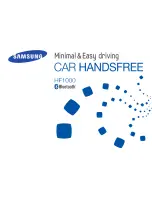
To determine the maximum loading conditions of your
vehicle, locate the statement “The combined weight of
occupants and cargo should never exceed XXX lbs or
XXX kg” on the Tire and Loading Information placard.
The combined weight of occupants, cargo/luggage and
trailer tongue weight (if applicable) should never exceed
the weight referenced here.
Steps For Determining Correct Load Limit
1. Locate the statement “The combined weight of occu-
pants and cargo should never exceed XXX lbs or
XXX kg” on your vehicle’s placard.
2. Determine the combined weight of the driver and
passengers that will be riding in your vehicle.
3. Subtract the combined weight of the driver and pas-
sengers from XXX lbs or XXX kg.
4. The resulting figure equals the available amount of
cargo and luggage load capacity. For example, if
“XXX” amount equals 1,400 lbs (635 kg) and there will
be five 150 lb (68 kg) passengers in your vehicle, the
amount of available cargo and luggage load capacity
is 650 lbs (295 kg) (since 5 x 150 lbs (68 kg) = 750 lbs
(340 kg), and 1400 lbs (635 kg) – 750 lbs (340 kg) =
650 lbs [295 kg]).
5. Determine the combined weight of luggage and cargo
being loaded on the vehicle. That weight may not
safely exceed the available cargo and luggage load
capacity calculated in step 4.
348
STARTING AND OPERATING
Summary of Contents for 2014 Challenger SRT
Page 1: ...O W N E R S M A N U A L 2 0 1 4 Challenger SRT ...
Page 4: ......
Page 7: ...1 INTRODUCTION 5 ...
Page 10: ......
Page 100: ......
Page 136: ...134 UNDERSTANDING THE FEATURES OF YOUR VEHICLE ...
Page 137: ...3 UNDERSTANDING THE FEATURES OF YOUR VEHICLE 135 ...
Page 138: ...136 UNDERSTANDING THE FEATURES OF YOUR VEHICLE ...
Page 204: ......
Page 209: ...INSTRUMENT CLUSTER 4 UNDERSTANDING YOUR INSTRUMENT PANEL 207 ...
Page 281: ...4 UNDERSTANDING YOUR INSTRUMENT PANEL 279 ...
Page 352: ...350 STARTING AND OPERATING ...
Page 384: ......
Page 497: ...INDEX 10 ...
















































